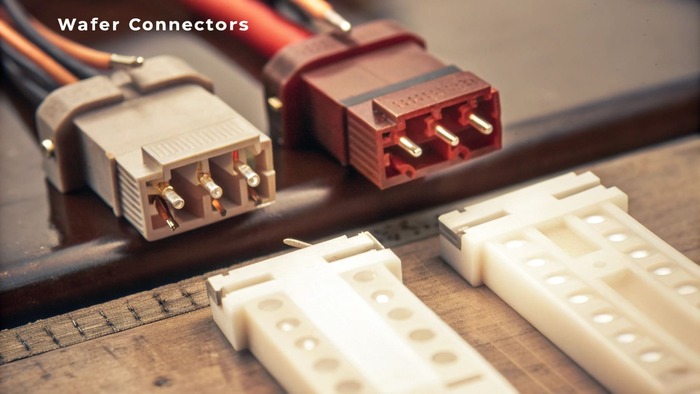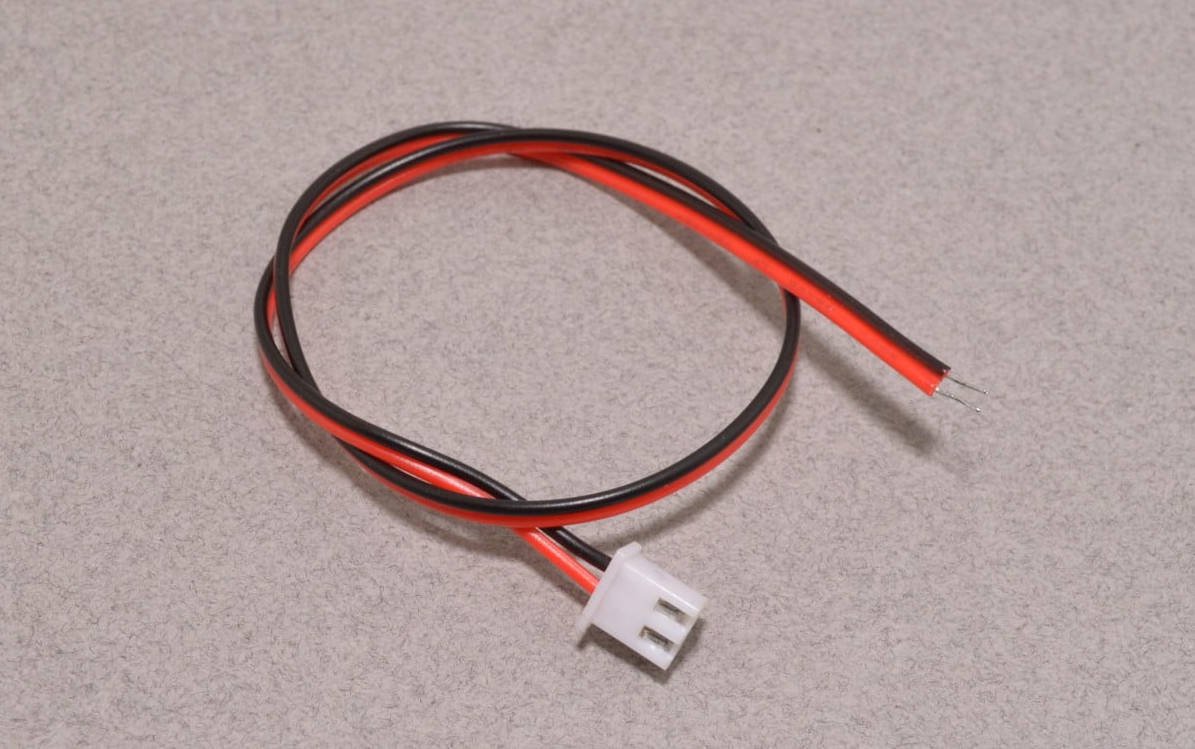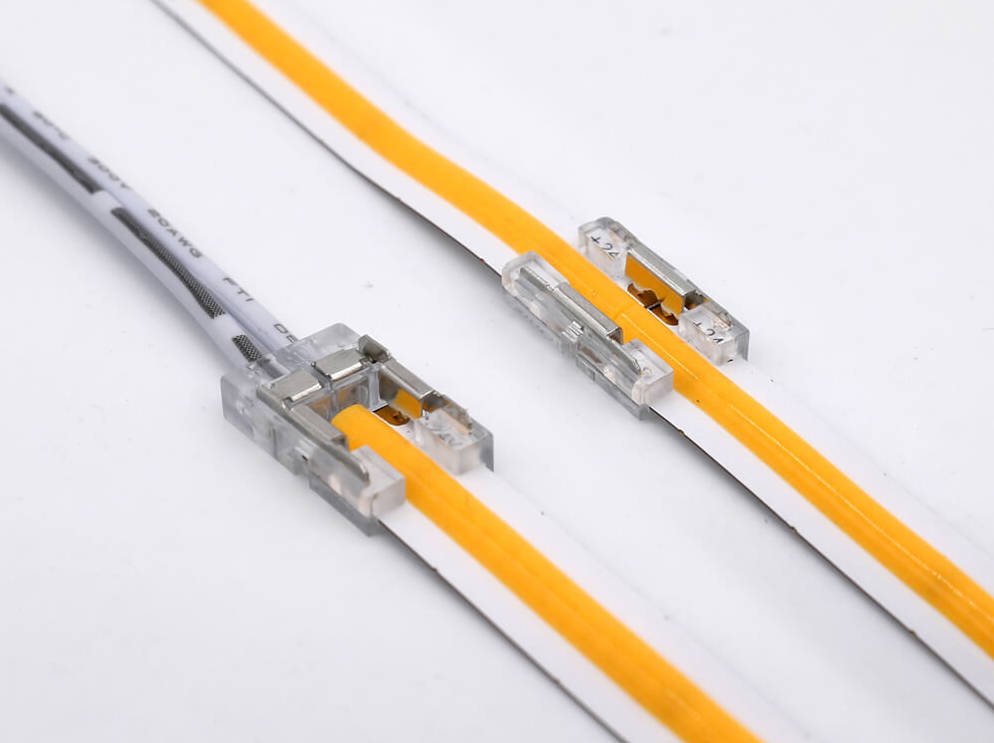Problem: The semiconductor industry is the backbone of modern technology, driving innovations in electronics, computing, and communication. However, the complexity and precision required in semiconductor manufacturing present significant challenges. One critical component that addresses these challenges is the wafer connector.
Agitation: Without reliable wafer connectors, semiconductor manufacturers face risks such as inconsistent electrical connections, reduced manufacturing efficiency, and increased defect rates. These issues can lead to higher production costs, delayed time-to-market, and compromised product quality, ultimately affecting the competitiveness of semiconductor companies.
Solution: Wafer connectors are indispensable in semiconductor manufacturing, providing reliable electrical connections between semiconductor wafers and testing or packaging equipment. They ensure precision, enhance production efficiency, and maintain the high-quality standards necessary for semiconductor devices.
Wafer connectors are essential components that provide reliable electrical connections between semiconductor wafers and testing equipment, ensuring the accuracy and efficiency of the manufacturing process.
Understanding the significance of wafer connectors can help semiconductor manufacturers make informed decisions, leading to improved product quality and operational efficiency. This article explores the critical role wafer connectors play in semiconductor manufacturing, the benefits they offer, and how to choose the right wafer connectors supplier.
Table of Contents
- What Are Wafer Connectors?
- The Role of Wafer Connectors in Semiconductor Manufacturing
- Key Benefits of Using Wafer Connectors
- Choosing the Right Wafer Connectors Supplier
- Innovations in Wafer Connectors Manufacturing
- Custom Wafer Connectors: Tailoring Solutions for Unique Requirements
- Challenges in Wafer Connectors Manufacturing and How to Overcome Them
- Conclusion
- Frequently Asked Questions (FAQ)
What Are Wafer Connectors?
Wafer connectors are specialized components designed to establish electrical connections between semiconductor wafers and the testing or packaging equipment used in semiconductor manufacturing. They are integral to ensuring that electrical signals can be accurately transmitted during the testing phases of semiconductor production.
These connectors are meticulously engineered to handle the delicate and precise requirements of semiconductor devices, ensuring minimal signal loss and high reliability.

Wafer connectors come in various types, each tailored to specific applications within the semiconductor manufacturing process. From simple pin connectors to more complex multi-pin configurations, the design and functionality of wafer connectors are crucial for maintaining the integrity of electrical connections. The choice of wafer connector depends on factors such as the complexity of the semiconductor device, the required precision, and the environmental conditions of the manufacturing process.
The Role of Wafer Connectors in Semiconductor Manufacturing
Wafer connectors play a multifaceted role in the semiconductor manufacturing process, contributing to both the efficiency and quality of production. They serve as the vital link between the semiconductor wafer and the external testing or packaging systems, ensuring that electrical signals are accurately transmitted and received.
They ensure reliable electrical connections, facilitate high-precision operations, and enhance overall production efficiency, making them indispensable in semiconductor fabrication.
Reliable electrical connections are paramount in semiconductor manufacturing, where even minor inconsistencies can lead to significant defects. Wafer connectors provide stable and consistent connections, minimizing the risk of errors and enhancing the precision of the manufacturing process. This reliability is crucial during the testing phase, where accurate measurements are essential for determining the functionality and quality of semiconductor devices.
Additionally, wafer connectors facilitate high-precision operations by ensuring that electrical signals are transmitted without interference or loss. This precision is vital for detecting defects, measuring electrical properties, and ensuring that semiconductor devices meet the stringent quality standards required for their intended applications.
Furthermore, wafer connectors enhance production efficiency by reducing the time and effort required for testing and packaging. Their robust design and reliable performance minimize the need for rework or repeated testing, thereby streamlining the manufacturing process and reducing overall production costs.
Key Benefits of Using Wafer Connectors
Integrating high-quality wafer connectors into the semiconductor manufacturing process offers numerous benefits that contribute to the overall success and competitiveness of manufacturers. These benefits range from improved performance and reliability to cost-effectiveness and customization options.
Improved performance and reliability, cost-effectiveness in the long run, and customization options for specific needs are some of the key advantages of using wafer connectors in semiconductor production.
Improved Performance and Reliability
High-quality wafer connectors are designed to provide consistent and reliable electrical connections, which are critical for maintaining the performance of semiconductor devices. By ensuring minimal signal loss and interference, wafer connectors contribute to the overall efficiency and effectiveness of the manufacturing process. This reliability reduces the likelihood of defects and enhances the quality of the final semiconductor products.
Cost-Effectiveness
While the initial investment in high-quality wafer connectors may be higher, the long-term cost benefits are significant. Reliable connectors reduce the need for frequent replacements and maintenance, lowering overall production costs. Additionally, by minimizing defects and rework, wafer connectors contribute to a more efficient manufacturing process, further reducing operational expenses.
Customization Options
One of the standout benefits of wafer connectors is the ability to customize them to meet specific manufacturing requirements. Custom wafer connectors can be designed to accommodate unique electrical configurations, environmental conditions, and operational demands. This flexibility ensures that semiconductor manufacturers can optimize their processes and achieve better outcomes tailored to their specific needs.
Enhanced Production Efficiency
Wafer connectors streamline the manufacturing process by providing reliable connections that reduce downtime and improve throughput. Their robust design ensures that connections remain stable throughout the manufacturing cycle, allowing for continuous and efficient production. This enhancement in production efficiency translates to faster time-to-market and increased competitiveness in the semiconductor industry.
Scalability
As semiconductor manufacturers scale their operations, the demand for wafer connectors increases correspondingly. High-quality wafer connectors are designed to be scalable, supporting large-scale production without compromising on performance or reliability. This scalability ensures that manufacturers can expand their operations seamlessly, meeting growing market demands without facing bottlenecks in the supply chain.
Choosing the Right Wafer Connectors Supplier
Selecting a reputable wafer connectors supplier is crucial for ensuring the quality and reliability of your semiconductor manufacturing process. The right supplier can provide high-quality connectors that meet your specific needs, offer customization options, and support your production goals.
Factors such as quality certifications, manufacturing capabilities, and customization options should be considered when choosing a wafer connectors supplier.
Quality Certifications
When selecting a wafer connectors supplier, it’s essential to consider their quality certifications. Certifications such as UL, TUV, RoHS, and Reach indicate that the supplier adheres to stringent quality standards and regulatory requirements. These certifications ensure that the wafer connectors meet industry benchmarks for safety, performance, and environmental compliance.
Manufacturing Capabilities
A supplier’s manufacturing capabilities play a significant role in their ability to meet your production needs. This includes their capacity to manufacture wafer connectors at scale, their expertise in advanced manufacturing technologies, and their ability to maintain consistency and precision in their products. Suppliers with robust manufacturing capabilities are better equipped to support your manufacturing processes and ensure timely delivery of high-quality connectors.
Customization Options
Customization is a critical factor when choosing a wafer connectors supplier. The ability to design custom wafer connectors that meet your specific requirements can provide a competitive edge. Customization options may include variations in connector size, pin configuration, materials, and electrical specifications. Suppliers that offer comprehensive customization services can help you tailor their products to fit seamlessly into your manufacturing process.
Supplier Reputation and Experience
The reputation and experience of a wafer connectors supplier are important indicators of their reliability and quality. Suppliers with a long history in the industry are more likely to have established processes, quality control measures, and a track record of satisfied customers. Evaluating a supplier’s reputation through customer testimonials, case studies, and industry reviews can provide valuable insights into their capabilities and reliability.
Customer Support and Service
Effective customer support and service are essential for maintaining a smooth and efficient manufacturing process. A supplier that offers responsive customer service, technical support, and after-sales assistance can help address any issues that may arise, ensuring minimal disruption to your production schedule. Strong customer support can also facilitate better communication and collaboration, leading to more successful outcomes.
Case Study: Fongkit as a Leading Wafer Connectors Supplier
Fongkit is a renowned wafer connectors supplier known for its high-quality products and exceptional customer service. With 16 years of experience in designing and producing high voltage and low voltage LED lighting connector systems, Fongkit has established itself as a trusted partner in the industry. Their extensive product range, including distributor/junction boxes, splitters, connectors, male plug leads, female socket leads, extension leads, PCB sockets, wire harnesses, power plugs/sockets, switches, cables, housings, copper terminals, and OEM/ODM services, caters to a diverse range of semiconductor manufacturing needs.
Fongkit’s commitment to quality is demonstrated by their certifications, including UL, TUV, RoHS, and Reach, which ensure that their products meet the highest industry standards. Their dedicated R&D team continuously innovates to develop new connectors that align with market demands, providing customized solutions that enhance production efficiency and product quality.
By partnering with Fongkit, semiconductor manufacturers gain access to reliable wafer connectors that support their manufacturing processes, reduce defects, and improve overall efficiency. Fongkit’s ability to offer customized connectors tailored to specific requirements makes them a preferred choice for leading semiconductor companies globally.
Innovations in Wafer Connectors Manufacturing
The wafer connectors manufacturing industry is continually evolving, driven by advancements in technology and the increasing demands of semiconductor manufacturers. Innovations in manufacturing processes, materials, and design are enhancing the performance, reliability, and efficiency of wafer connectors.
Innovations such as automation, precision engineering, and new materials are transforming wafer connectors manufacturing, leading to improved performance and efficiency.
Advanced Manufacturing Technologies
The integration of advanced manufacturing technologies, such as automation and robotics, has significantly improved the precision and efficiency of wafer connectors manufacturing. Automated production lines ensure consistent quality and reduce the likelihood of human error, while robotics enable the handling of delicate components with high precision. These technologies facilitate the production of wafer connectors that meet the stringent requirements of semiconductor manufacturing.
Precision Engineering
Precision engineering is critical in the design and manufacturing of wafer connectors. High-precision machining and assembly processes ensure that connectors fit seamlessly into semiconductor equipment, providing reliable and stable electrical connections. Advances in precision engineering techniques have allowed manufacturers to produce wafer connectors with finer tolerances and more intricate designs, enhancing their performance and reliability.
New Materials
The use of new and advanced materials in wafer connectors is another significant innovation. Materials with superior electrical conductivity, thermal stability, and durability are being employed to enhance the performance and lifespan of wafer connectors. Innovations in material science have led to the development of connectors that can withstand harsh manufacturing environments, reducing the risk of failure and ensuring consistent performance.
Miniaturization
As semiconductor devices become increasingly miniaturized, the demand for smaller and more compact wafer connectors has grown. Manufacturers are developing wafer connectors that are smaller in size yet capable of handling high-density connections without compromising on performance. This miniaturization is essential for supporting the trend towards smaller and more powerful semiconductor devices.
Smart Connectors
Smart connectors are an emerging innovation in the wafer connectors industry. These connectors are equipped with sensors and monitoring capabilities that provide real-time data on the status of the connections. Smart connectors can detect issues such as signal loss, temperature fluctuations, and mechanical stress, allowing for proactive maintenance and reducing the risk of manufacturing disruptions.
Future Trends in Wafer Connectors
The future of wafer connectors manufacturing is poised to be shaped by further advancements in technology and materials. Trends such as the integration of artificial intelligence (AI) and machine learning (ML) in manufacturing processes, the development of eco-friendly materials, and the adoption of Industry 4.0 practices are expected to drive innovation in wafer connectors. These trends will continue to enhance the performance, reliability, and efficiency of wafer connectors, supporting the evolving needs of the semiconductor industry.
Custom Wafer Connectors: Tailoring Solutions for Unique Requirements
Every semiconductor manufacturing process has unique requirements, and custom wafer connectors offer tailored solutions to meet these specific needs. Customization allows manufacturers to optimize their processes, enhance performance, and address specific challenges that standard connectors may not adequately solve.
Custom wafer connectors provide flexibility and adaptability, allowing manufacturers to optimize their processes and achieve better outcomes.
Benefits of Custom Wafer Connectors
Custom wafer connectors offer several advantages over standard connectors, including:
- Precision Fit: Custom connectors can be designed to fit specific equipment and wafer configurations, ensuring optimal performance and minimizing the risk of connection errors.
- Enhanced Performance: Tailored connectors can incorporate features that address specific performance requirements, such as higher current ratings, better thermal management, or improved signal integrity.
- Durability: Custom connectors can be built using materials and designs that enhance their durability and lifespan, reducing the need for frequent replacements.
- Flexibility: Customization allows for flexibility in design, enabling connectors to adapt to changing manufacturing needs and technological advancements.
Process of Designing Custom Wafer Connectors
Designing custom wafer connectors involves several key steps:
- Assessment of Requirements: Understanding the specific needs of the semiconductor manufacturing process, including electrical specifications, environmental conditions, and mechanical constraints.
- Design and Prototyping: Creating detailed designs and prototypes that meet the identified requirements. This may involve using advanced CAD software and simulation tools to ensure optimal performance.
- Testing and Validation: Conducting rigorous testing to validate the performance and reliability of the custom connectors. This ensures that they meet the required standards and are fit for purpose.
- Production and Implementation: Manufacturing the custom connectors using high-precision processes and integrating them into the semiconductor manufacturing workflow.
Examples of Customized Solutions
Custom wafer connectors can be designed to address a wide range of specific challenges in semiconductor manufacturing. Examples include:
- High-Density Connections: Designing connectors with a higher number of pins in a compact form factor to accommodate densely packed semiconductor devices.
- Thermal Management: Incorporating materials and designs that enhance heat dissipation, ensuring that connectors remain stable and reliable under high-temperature conditions.
- Specialized Electrical Configurations: Creating connectors with unique electrical pathways or configurations to support specific testing or operational requirements.
- Environmental Resistance: Designing connectors that are resistant to harsh manufacturing environments, including exposure to chemicals, moisture, and mechanical stress.
Case Study: Custom Wafer Connectors by Fongkit
Fongkit excels in providing custom wafer connectors tailored to the unique needs of semiconductor manufacturers. By collaborating closely with clients, Fongkit ensures that each custom connector meets the specific requirements of the manufacturing process. This collaboration involves understanding the client’s operational challenges, designing connectors that address these challenges, and rigorously testing the connectors to ensure their performance and reliability.
One notable example is Fongkit’s development of high-density wafer connectors for a leading semiconductor company. These custom connectors enabled the manufacturer to streamline their testing process, reduce connection errors, and enhance the overall efficiency of their production line. The success of this project underscores the importance of custom wafer connectors in optimizing semiconductor manufacturing processes.
Challenges in Wafer Connectors Manufacturing and How to Overcome Them
Manufacturing wafer connectors comes with its set of challenges, including maintaining precision, ensuring quality, and meeting tight deadlines. Addressing these challenges requires advanced manufacturing techniques, rigorous quality control, and reliable partnerships with wafer connectors suppliers.
Overcoming these challenges requires advanced manufacturing techniques, rigorous quality control, and a reliable wafer connectors factory.

Maintaining Precision
Precision is paramount in wafer connectors manufacturing. Any deviation from the specified tolerances can lead to connection failures, signal loss, and reduced reliability. Achieving high precision requires advanced manufacturing equipment, skilled technicians, and stringent quality control measures.
Ensuring Quality
Quality assurance is critical to producing wafer connectors that meet the demanding standards of semiconductor manufacturing. This involves implementing comprehensive quality control processes, conducting regular inspections, and adhering to industry standards and certifications. Suppliers must prioritize quality at every stage of the manufacturing process to ensure that their connectors are reliable and durable.
Meeting Tight Deadlines
Semiconductor manufacturing often operates on tight schedules, requiring wafer connectors to be produced and delivered promptly. Meeting these deadlines demands efficient production processes, effective project management, and strong supplier relationships. Delays in connector manufacturing can disrupt the entire production timeline, leading to increased costs and missed market opportunities.
Strategies to Overcome Challenges
To overcome the challenges in wafer connectors manufacturing, manufacturers can adopt several strategies:
- Invest in Advanced Equipment: Utilizing state-of-the-art manufacturing equipment can enhance precision and efficiency, reducing the likelihood of errors and improving production speed.
- Implement Rigorous Quality Control: Establishing comprehensive quality control protocols ensures that each wafer connector meets the required standards, minimizing defects and enhancing reliability.
- Foster Strong Supplier Relationships: Partnering with reliable wafer connectors suppliers who can meet quality and delivery expectations is essential for maintaining a smooth manufacturing process.
- Continuous Training and Development: Providing ongoing training for manufacturing staff ensures that they are equipped with the latest skills and knowledge to maintain high production standards.
- Adopt Lean Manufacturing Practices: Implementing lean manufacturing techniques can optimize production processes, reduce waste, and improve overall efficiency.
The Importance of a Reliable Wafer Connectors Factory
A reliable wafer connectors factory is the cornerstone of overcoming manufacturing challenges. A reputable factory will have the necessary expertise, equipment, and quality control measures in place to produce high-quality wafer connectors consistently. Additionally, a reliable factory will be responsive to client needs, capable of handling custom orders, and committed to meeting delivery deadlines.
Fongkit exemplifies a reliable wafer connectors factory, with a dedicated team of experts, advanced manufacturing facilities, and a commitment to quality and customer satisfaction. Their ability to produce both standard and custom wafer connectors with precision and reliability makes them a trusted partner for semiconductor manufacturers worldwide.
Conclusion
Wafer connectors are indispensable components in the semiconductor manufacturing process, ensuring reliable electrical connections, enhancing production efficiency, and contributing to the overall quality of semiconductor devices. The critical role they play in maintaining the integrity and precision of manufacturing operations cannot be overstated.
Selecting the right wafer connectors supplier, leveraging innovations in manufacturing, and opting for custom solutions are key factors that can significantly impact the success of semiconductor manufacturing operations. By addressing the challenges inherent in wafer connectors manufacturing and embracing advanced technologies and customization, semiconductor manufacturers can achieve higher quality standards, greater efficiency, and a stronger competitive edge in the market.
As the semiconductor industry continues to evolve, the importance of high-quality wafer connectors will only grow. Investing in reliable connectors and partnering with reputable suppliers like Fongkit will ensure that semiconductor manufacturers can meet the demands of modern technology and drive future innovations.
Frequently Asked Questions (FAQ)
1. What are the main types of wafer connectors?
Wafer connectors come in various types, including pin connectors, multi-pin connectors, and custom-designed connectors tailored to specific applications within semiconductor manufacturing. Each type is designed to meet different requirements in terms of electrical configuration, size, and performance.
2. Why is customization important for wafer connectors?
Customization allows manufacturers to address unique challenges and requirements, ensuring that wafer connectors meet specific electrical and mechanical needs. This enhances overall performance, reliability, and efficiency in the semiconductor manufacturing process.
3. How do I choose a reliable wafer connectors supplier?
Consider factors such as quality certifications (e.g., UL, TUV, RoHS), manufacturing capabilities, customization options, supplier reputation, and customer support. Suppliers like Fongkit, with extensive experience and comprehensive certifications, are reliable choices for high-quality wafer connectors.
4. What innovations are shaping the future of wafer connectors?
Advancements in automation, precision engineering, new materials, miniaturization, and the development of smart connectors are driving improvements in wafer connectors. These innovations lead to higher performance, better reliability, and increased efficiency in semiconductor manufacturing.
5. How do wafer connectors enhance production efficiency?
By providing reliable and precise electrical connections, wafer connectors minimize errors and downtime, leading to smoother and more efficient manufacturing processes. This enhancement in efficiency reduces production costs and accelerates time-to-market for semiconductor products.
6. What materials are commonly used in wafer connectors?
Wafer connectors are typically made from materials with high electrical conductivity and thermal stability, such as copper, gold, and various alloys. These materials ensure reliable signal transmission and durability under the demanding conditions of semiconductor manufacturing.
7. Can wafer connectors be used in high-temperature environments?
Yes, wafer connectors can be designed to operate effectively in high-temperature environments. Custom connectors can incorporate materials and designs that enhance thermal management, ensuring stable performance even under elevated temperatures.
8. What is the lifespan of a wafer connector?
The lifespan of a wafer connector depends on factors such as the quality of materials, manufacturing precision, and operational conditions. High-quality wafer connectors, like those produced by Fongkit, are designed to be durable and reliable, with a long operational lifespan even in demanding manufacturing environments.
9. How do smart wafer connectors work?
Smart wafer connectors are equipped with sensors and monitoring capabilities that provide real-time data on connection status, signal integrity, and environmental conditions. This data allows for proactive maintenance and troubleshooting, reducing the risk of manufacturing disruptions and enhancing overall process reliability.
10. What role does automation play in wafer connectors manufacturing?
Automation enhances the precision and efficiency of wafer connectors manufacturing by reducing human error, increasing production speed, and ensuring consistent quality. Automated processes enable the production of high-quality connectors that meet the stringent requirements of semiconductor manufacturing.



